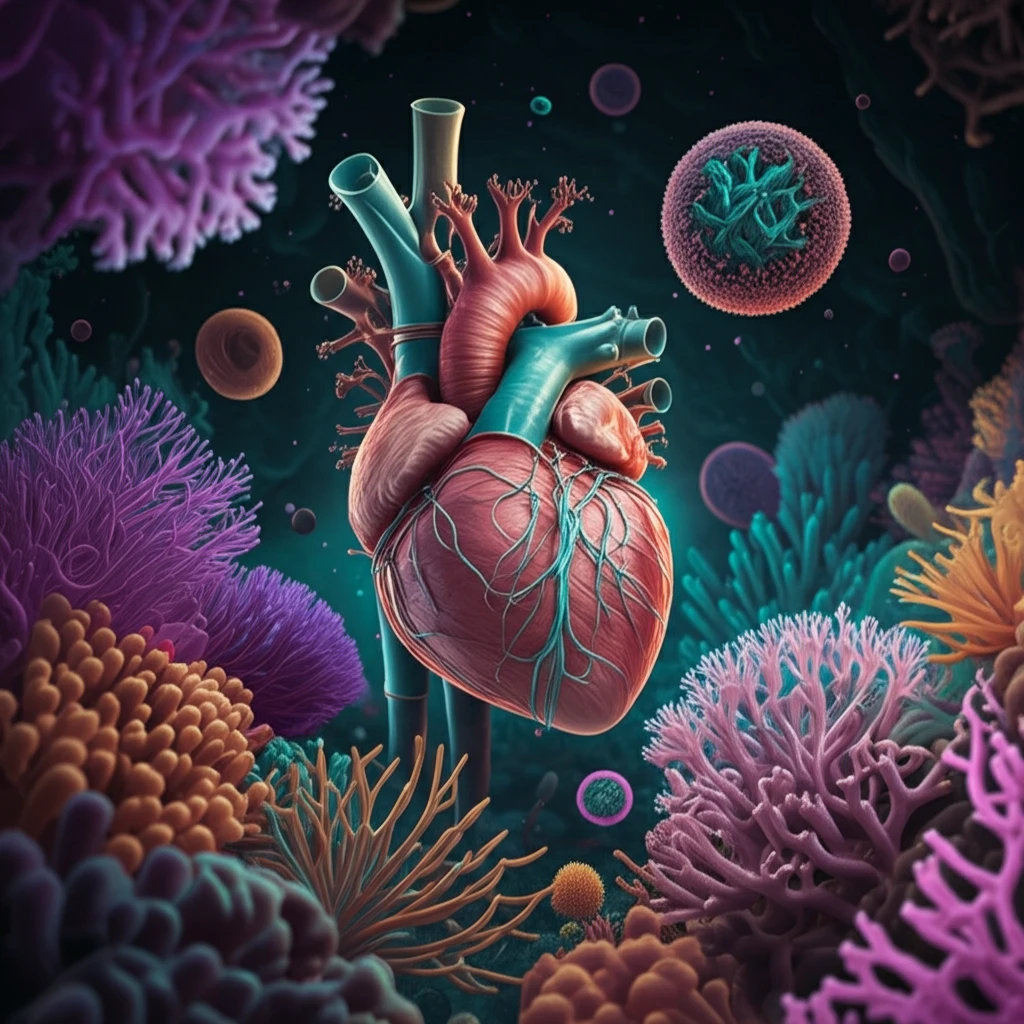
Unlock Your Health: How Marine Compounds Could Revolutionize Heart Disease Treatment
"Discover the groundbreaking research exploring how natural substances from the ocean could offer new hope for cardiovascular health."
The ocean, a vast and largely unexplored realm, holds immense potential for drug discovery. Marine organisms are increasingly recognized as a rich source of unique bioactive compounds, offering promising avenues for developing novel therapeutics. Among the most exciting areas of research is the investigation of marine-derived substances for treating cardiovascular diseases, a leading cause of morbidity and mortality worldwide.
One particular focus is on endothelin-1 (ET-1), a potent vasoconstrictor that plays a significant role in cardiovascular function. The effects of ET-1 are mediated through two G-protein-coupled receptors (GPCRs), ETA and ETB. While ETA receptors are primarily located on vascular smooth muscle cells and mediate vasoconstriction, ETB receptors, found on endothelial cells, promote vasodilation through the release of nitric oxide and prostacyclin.
This delicate balance between ETA and ETB receptor activation is crucial for maintaining vascular homeostasis. However, in cardiovascular diseases, this balance is often disrupted, leading to an overactivation of ETA receptors and detrimental vasoconstriction. Consequently, the development of selective ETA receptor antagonists has emerged as a promising therapeutic strategy.
Fluorescence Correlation Spectroscopy (FCS): A Window into Receptor Dynamics

Traditional drug discovery methods often focus on receptor binding and signal transduction, but they frequently overlook the dynamic interactions and mobility of receptors within the cell membrane. To address this gap, researchers are increasingly turning to advanced techniques like fluorescence correlation spectroscopy (FCS).
- Real-time analysis: FCS monitors receptor-ligand interactions without disturbing the system.
- Single-molecule sensitivity: FCS detects even subtle changes in molecular behavior.
- Dynamic information: FCS reveals how drugs affect the movement and interactions of receptors.
- Versatile application: FCS can be used to study a wide range of biological systems and drug targets.
Future Directions: Towards More Selective Antihypertensive Drugs
The findings from this study offer valuable insights into the dynamic interactions of ETA receptors and their ligands, paving the way for the development of more selective and effective antihypertensive drugs. By understanding how different compounds influence receptor mobility and activity, researchers can design novel therapeutics that target specific receptor states and minimize potential side effects. As research in marine pharmacology continues to advance, the ocean may hold the key to unlocking new treatments for cardiovascular disease and improving global health.
